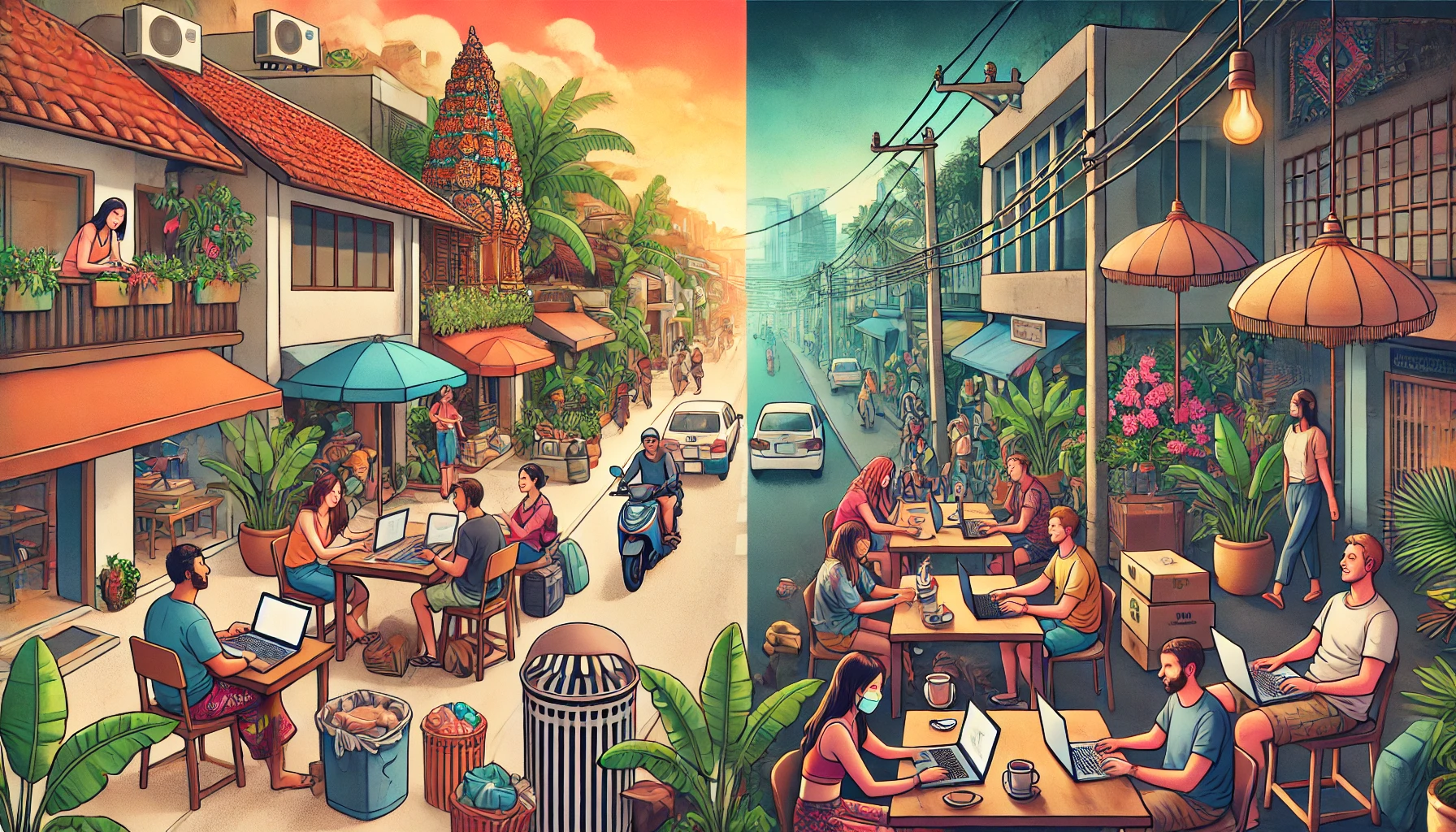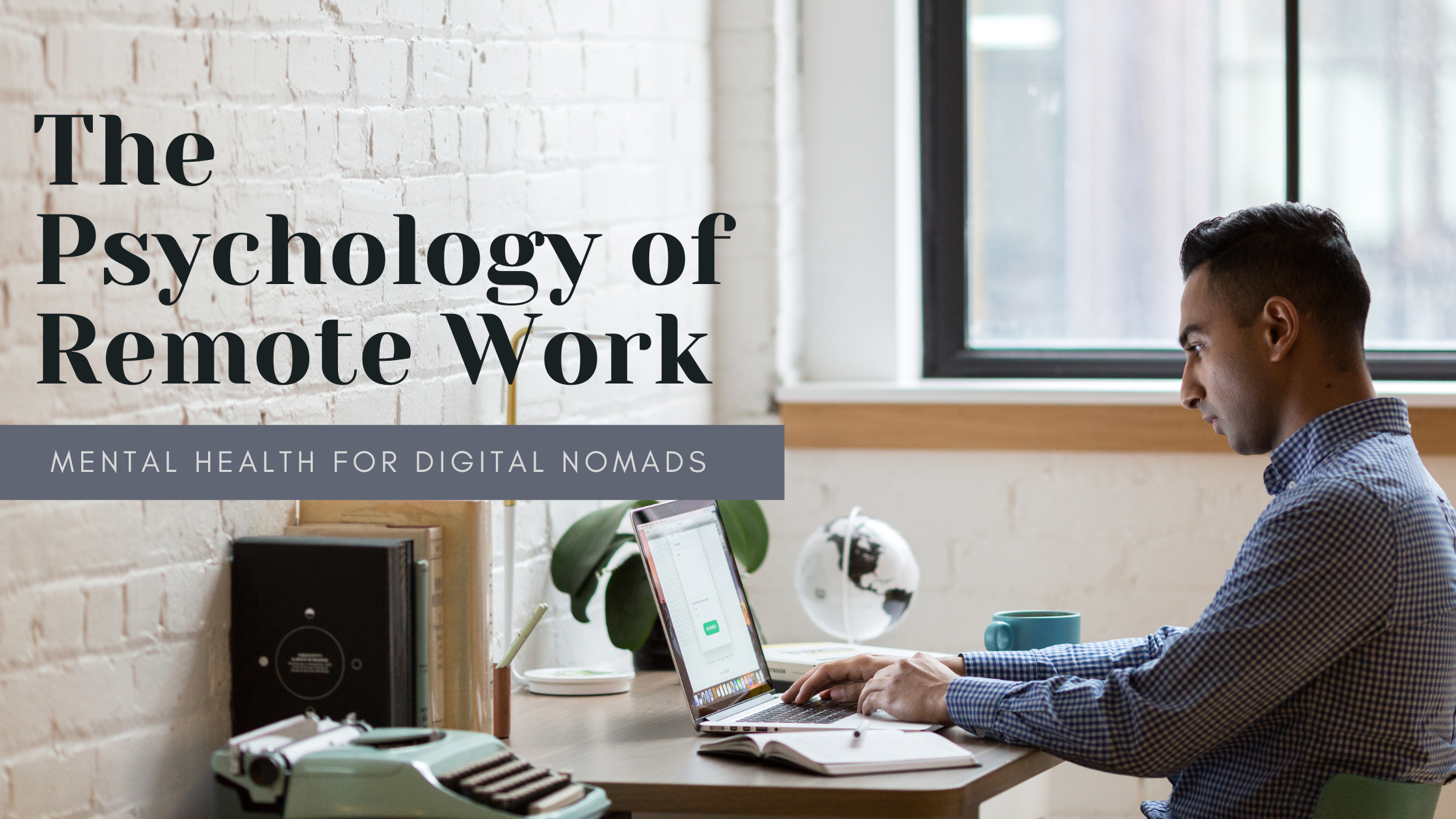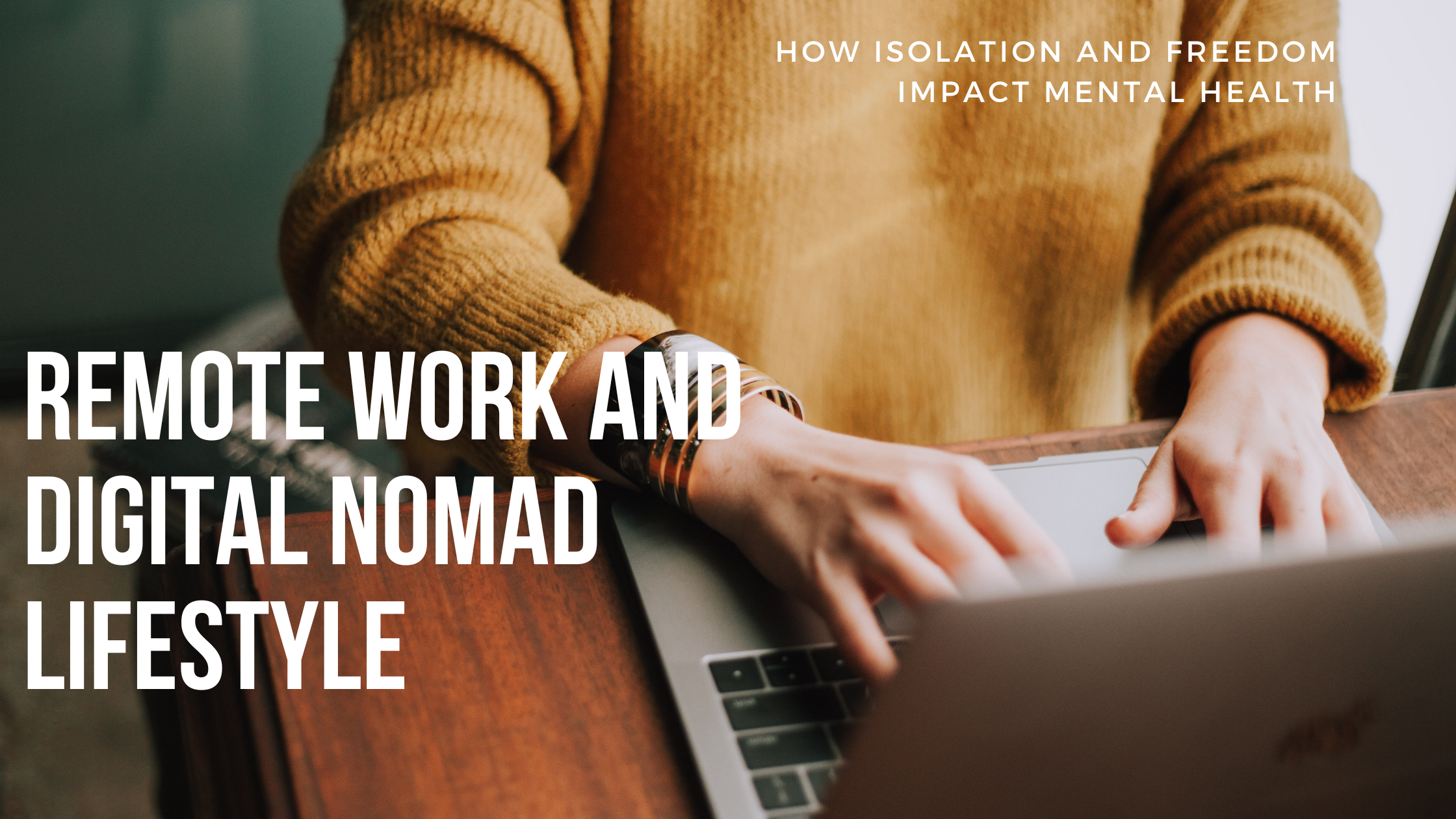The digital nomad lifestyle has always been about embracing innovation and staying ahead of the curve. As technology continues to evolve, so do the tools that make remote work possible. Two of the most exciting advancements shaping the future of remote work are Artificial Intelligence (AI) and Virtual Reality (VR). These technologies are not just changing how we work—they’re redefining the entire digital nomad experience.
In this blog, we’ll explore how AI and VR are transforming remote work, the tools you can start using today, and what the future holds for digital nomads.
How AI is Revolutionizing Remote Work
Artificial Intelligence is no longer a futuristic concept—it’s here, and it’s making remote work smarter, faster, and more efficient. Here’s how:
- AI-Powered Productivity Tools
Tools like ChatGPT, Notion AI, and Grammarly are helping digital nomads streamline their workflows. From generating content to organizing tasks, AI can handle repetitive tasks, freeing up time for more creative and strategic work. - Smart Scheduling and Time Management
AI-driven tools like Clockwise and Motion optimize your schedule by automatically arranging meetings, blocking focus time, and prioritizing tasks based on deadlines. - Personalized Learning and Skill Development
Platforms like Coursera and Udemy use AI to recommend courses tailored to your career goals, helping you stay competitive in a rapidly changing job market. - Enhanced Communication
AI-powered tools like Otter.ai for transcription and Krisp for noise cancellation make virtual meetings more efficient and professional, even when you’re working from a noisy café or co-working space.
The Role of VR in Remote Work
Virtual Reality is taking remote work to a whole new level by creating immersive, interactive workspaces. Here’s how VR is changing the game for digital nomads:
- Virtual Offices and Coworking Spaces
Platforms like Spatial and Horizon Workrooms allow digital nomads to create virtual offices where they can collaborate with teammates in real-time, no matter where they are in the world. - Immersive Training and Onboarding
VR is being used for employee training and onboarding, providing hands-on experiences without the need for physical presence. For example, a digital nomad working in tech can participate in a virtual coding bootcamp or product demo. - Virtual Networking and Events
Attending conferences and networking events is easier than ever with VR. Platforms like VirBELA and AltspaceVR host virtual events where you can interact with other professionals in a 3D environment. - Enhanced Creativity and Design
For digital nomads in creative fields, VR tools like Tilt Brush and Gravity Sketch offer new ways to design and visualize projects, from 3D modeling to virtual art installations.
The Future of Remote Work: AI and VR Combined
The real magic happens when AI and VR come together. Imagine a future where:
- Your AI assistant schedules meetings, prepares agendas, and joins you in a virtual boardroom.
- You can collaborate with teammates in a VR workspace, using AI to translate languages in real-time.
- AI analyzes your work patterns and suggests VR environments that boost your productivity, whether it’s a serene beach or a bustling cityscape.
This combination of technologies will make remote work more seamless, immersive, and personalized than ever before.
Tools You Can Start Using Today
Ready to embrace the future of remote work? Here are some AI and VR tools to get you started:
- AI Tools:
- ChatGPT: For content creation, brainstorming, and task automation.
- Notion AI: For organizing projects and generating ideas.
- Otter.ai: For transcribing meetings and interviews.
- Krisp: For noise-free virtual meetings.
- VR Tools:
- Spatial: For virtual collaboration and meetings.
- Horizon Workrooms: For immersive team workspaces.
- VirBELA: For virtual networking and events.
- Tilt Brush: For creative design and visualization.
Conclusion
The future of remote work is here, and it’s powered by AI and VR. These technologies are not just making work easier—they’re creating new possibilities for digital nomads to collaborate, learn, and thrive in a globalized world.
By embracing AI and VR tools, you can stay ahead of the curve and take your digital nomad experience to the next level. Whether you’re optimizing your productivity with AI or collaborating in a virtual workspace, the future of remote work is full of exciting opportunities.






